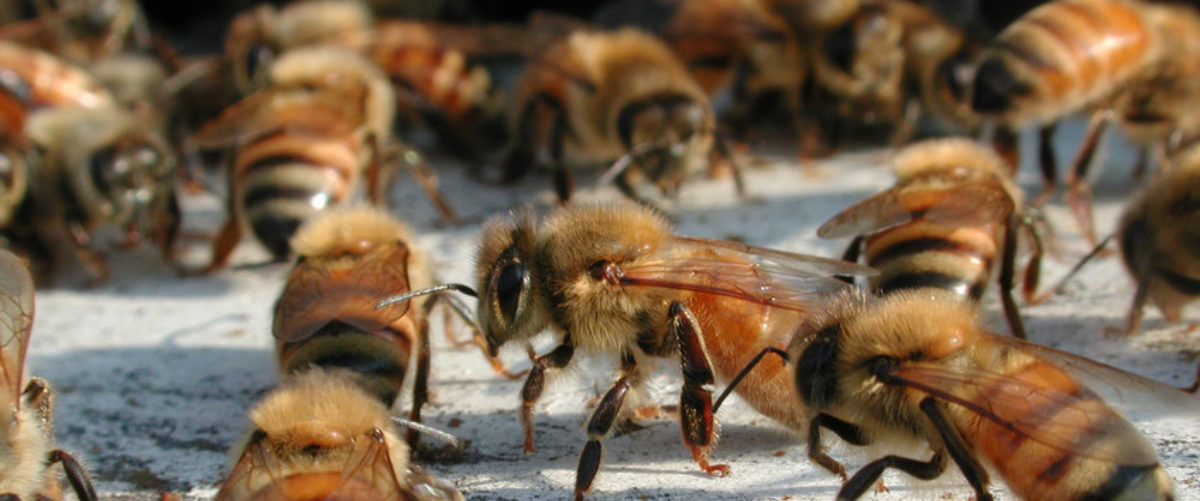How would you describe your association with apiculture?
State Apiarist, Master Beekeeper, Extension Associate Professor / Beekeeping Instructor and Entomologist Researcher.
What is your specific area of expertise?
The State Apiarist provides inspections in accordance with the New Jersey Department of Agriculture regulations. The Master Beekeeper provides periodic recommendations for seasonal beekeeping management via publications and inspections, and rears locally adapted queens. The Extension Associate Professor / County Agent provides beekeeping courses through Rutgers, The State University of New Jersey and is engaged in queen rearing to improve genetics. Researchers at Rutgers University also investigate honey bee health in commercial pollination settings.
Please describe the policy needs in your state.
A state policy is needed to support the establishment of pollinator habitats in urban, suburban, and rural areas.
Please describe the programming needs in your state.
NJSA, Chapter 6, Section 4:6-24: Regulation of breeding, keeping of honey bees includes the requirement that all beekeepers take an accredited beekeeping course.
https://www.nj.gov/agriculture/pdf/NJBEELAW2019.pdf
New Jersey needs more training to maintain and advance the skills of all beekeepers. Several advanced courses are available, but more courses in more locations are needed.
Please describe the research needs in your state.
Research must continue on:
1) Effective varroa mite treatment programs adapted to the New Jersey conditions.
2) Pesticide application in agricultural (especially blueberry) and residential settings and the effect of these applications on honey bees and other pollinators.
3) The effects of and treatment for Nosema is needed.
Describe ongoing happenings in your state (policy, programming and/or research)
The beekeeping association worked with State legislators to establish requirements for beekeepers regulated by the Department of Agriculture.
(New Jersey Administrative Code, Title 2, Chapter 24
https://www.nj.gov/agriculture/pdf/Diseasesofbees.pdf
Individual local regulators can no longer ban beekeeping or restrict the placement of hives, in either suburban or urban areas. Among other regulations are those related to the number of hives on a land area, best practices for hive placement and beekeeping management, and an educational requirement. The State Apiarist enforces these regulations.
Effective October 4, 2021, new rules requiring a NJ Dept. of Health Cottage Food Operator (home baker) Permit became effective. The regulation stated that all honey, including raw, unprocessed honey had to be handled in an inspected facility. Prior to the passage of this regulation, honey had been regulated by the Department of Agriculture like other unprocessed (fresh) foods. NJBA worked through 2022 to get an amendment passed to remove raw, processed honey from N.J.A.C. 8:24-1.5 Definitions
https://www.nj.gov/health/ceohs/phfpp/retailfood/cottagefood.shtml#5
The NJDoAg continues to regulate unprocessed honey, while processed honey or honey with added ingredients is regulated by the Department of Health.
What do you feel are the most pressing issues in the mid-Atlantic region?
Varroa mites continue to be the root cause of many of the colony losses.
Future issues will likely include Tropilaelaps mites and new viruses. Information is needed to make sure that beekeepers are prepared for these issues.
Packages and Nucs shipped in from southern areas can have queens with Africanized and overly defensive traits. These overly defensive colonies result in complaints and pressure for more beekeeping regulations.
Improper/off-label/misuse/overuse of miticides by both backyard and commercial beekeepers.
Additional Information
New Jersey has one full time Apiarist. As funding permits, part-time Apiarists are employed during the Spring, Summer and Fall to help with inspections and support of beekeepers. The State Apiarist(s) inspect colonies statewide for the prevention, detection, control and eradication of honey bee pests and diseases; interstate certification for crop pollination; honey bee sales; diagnostic testing for the detection of parasites in honey bees; and conduct surveys for invasive bees and exotic pests. The State Apiarist has coordinated with Field Watch to include registered beekeepers in the Beecheck program. Beecheck is a voluntary communication tool that enables beekeepers and pesticide applicators to work together to protect apiaries. The NJDEP also enables pesticide applicators to avoid pesticide application to honey bee hives. When beekeepers register their hives, they can voluntarily and automatically include the hive locations with the NJDEP.
The New Jersey Beekeepers Association has 10 very active branches. Many of the branches sponsor beginning beekeeping classes. The NJBA has state wide meetings four times a year. Industry and local experts are featured speakers at the state and branch meetings.
Two former State Apiarists who are now commercial beekeepers conduct several advanced beekeeping courses in the winter season.
MAAREC representatives for New Jersey are: NJ State Apiarist – Meghan McConnell, NJ Beekeepers Association – Joseph Lelinho and John Gaut, Rutgers University Department of Entomology- Chelsea Abeggs, Rutgers University Extension-Michael Haberland
